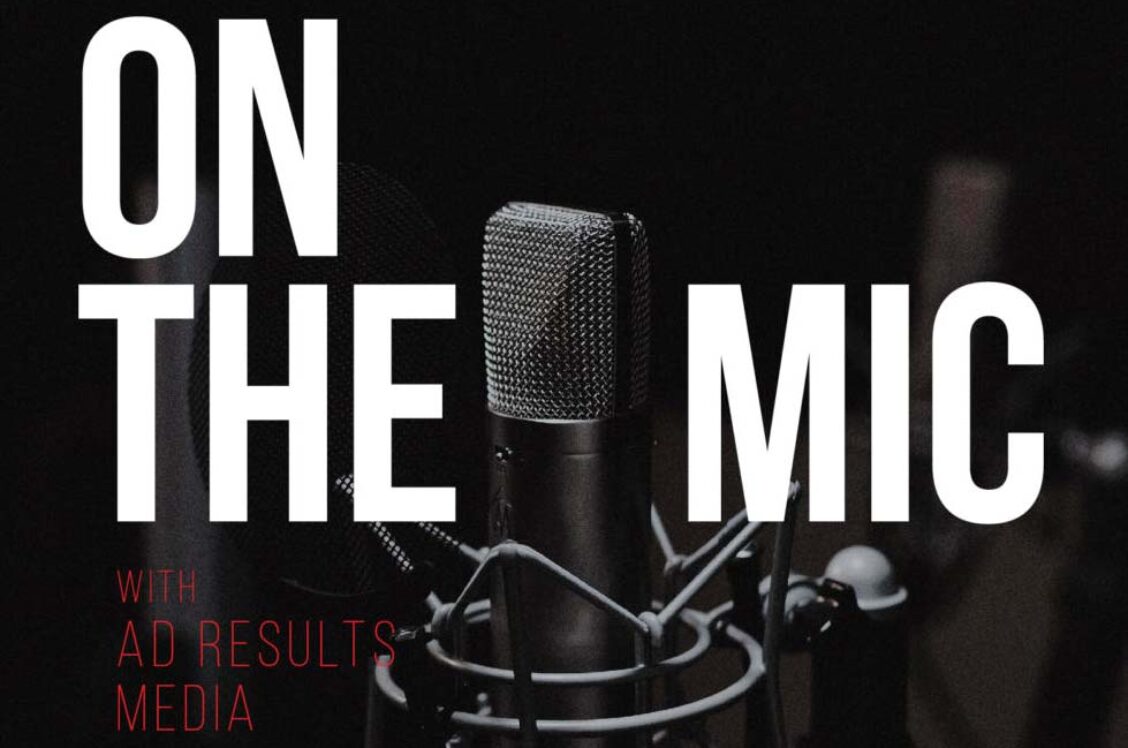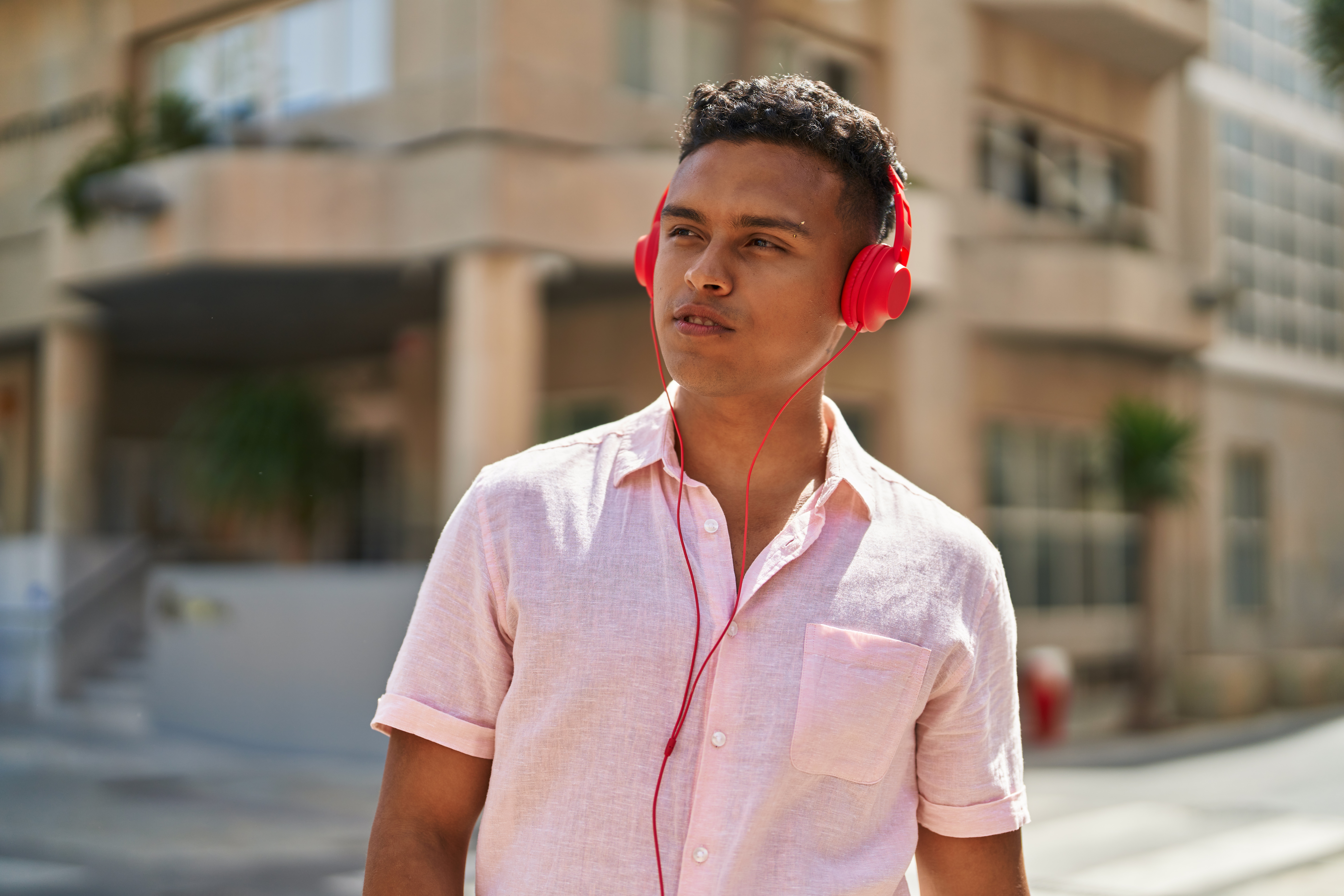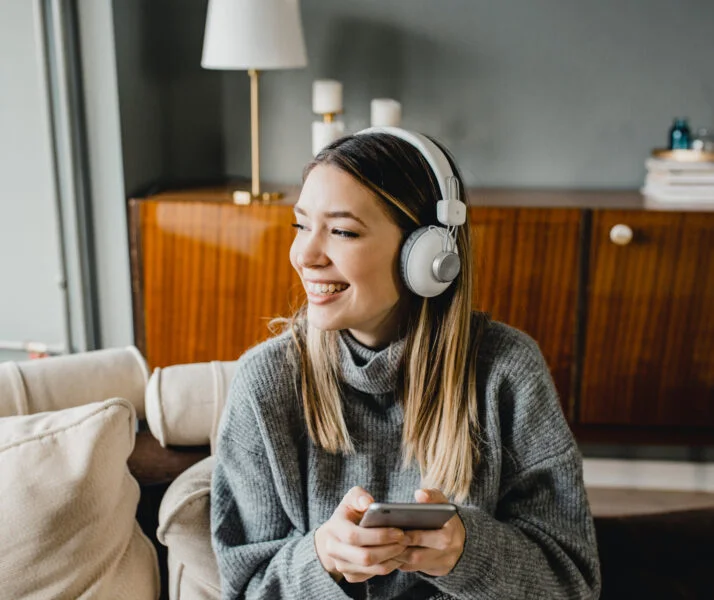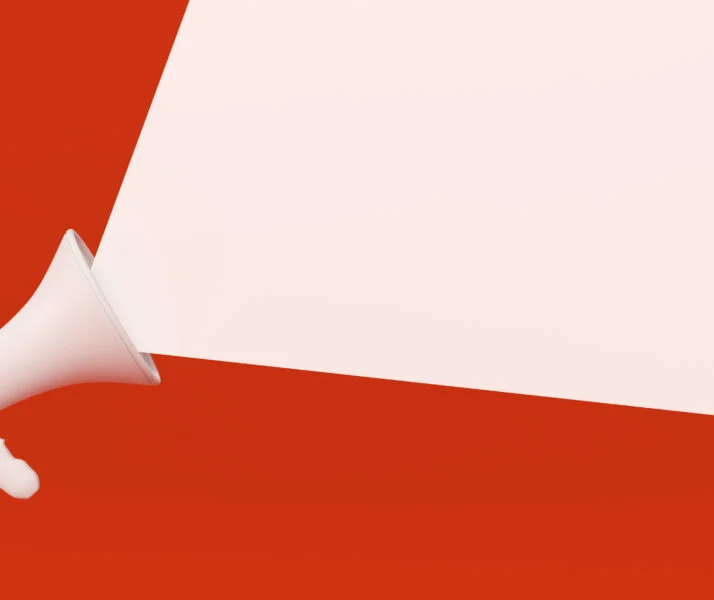
Why do we love stories of true crime? Is it the fear? Is it the thrill? Or is it the feeling of “what if” that these stories often times elicit? In this episode of On the Mic with Ad Results Media, Lindsay Boyd walks Nathan Spell through the science behind why we’re obsessed with true crime.
The Birth of Podcasting: From Audio Blogs to RSS Feeds
(0s):
Podcasting and a sense States back to the mid 1990s and the early days of internet radio, audio subscription services, distributed audio files that listeners could play, pause and skip it at their leisure. Originally referred to as Audio blogging, the term Podcasting didn’t enter our vernacular until 2004. Since then the industry has seen a meteoric rise in popularity and innovation. In this episode of On the Mic with Ad Results Media, we will be taking the research notes that we have accumulated throughout our past episodes and discussing the timeline and history of Podcasting. So let’s get started. And that’s the great thing about stamps.com. They grow with you as much fun as I had. I couldn’t wait to get back to my sleep number bed.
(45s):
I love my third love bras, their hands down, the most comfortable bras I’ve ever owned. I love making blue apron and they love it. It’s my me time. The number of well-written and interesting articles that can be found on the why behind Podcasting, why did it become so popular? Why did it grow so quickly? Why should you, or shouldn’t you start your own podcast? But in this episode, I want to focus on the history of the medium and, you know, the fact that people feel like it just kind of exploded out of nowhere. So Nate lets kind of start with how you got into Podcasting.
(1m 27s):
So I got interested in podcasts because of a creative writing professor at U of H Matt Johnson, who asked us to listen to a new podcast called serial. And we were going to discuss the, the structure and the writing umm, in the class. And I mean, I think I was familiar with Podcast before, but I was sucked in by that show for sure. And it was also really great to be able to like kind of analyze the writing, but that just started like a domino effect for me. It was one after another, after that I actually got into Podcast with the no sleep Podcast I discovered are no sleep on Reddit.
(2m 14s):
And I was really into all of the short stories that were being posted there. And so when I learned about the podcast, I was like, this is excellent. This is something that I can also listen to in my free time or at work. And that just kind of open the flood Gates for me. So regarding the actual birth of Podcasting during my research, I found that there was some back and forth on wind Podcasting actually became a thing. However, the birth of the podcast seems to always find its way back to two very specific individuals, RSS developer, Dave Winer, and MTV VJ, Adam Curry. The main difference between what we know as Podcasting and its predecessor, Audio blogging is the ability to deliver the audio through RSS feeds or really simple syndication.
(2m 58s):
Are you familiar RSS vaguely, But I did not know that it was called really simple syndication. That’s a great name. So this technology was developed in part by Dave Weiner, the ability to carry Audio files via the RSS feed was actually released in 2000 when Weiner launched RSS 0.92. Throughout that year, he had received several requests for Audio blogging features and he had also previously discussed this possibility with his colleague Adam Curry in January, 2001, Weiner demonstrated this RSS enclosure feature by enclosing a grateful dead song in his web blog, which was really cool. But unfortunately for the first two years, the enclosure element was pretty much ignored by developers.
(3m 41s):
And wouldn’t show up on the timeline again until October of 2003, when Dave Wiener helped organize the first blogger con web blogger conference, which is a very long name, this conference included a talk on the History of audio blogging as well as another demonstration of the RSS enclosure and how they could be used to pass audio to iTunes and from there onto your iPod. And that’s when, so that’s when we get Podcasting obviously from the iPod. Yes, exactly. So Podcasting the term wouldn’t actually be coined until February, 2004 when guardian journalist bin Hammersley suggested the name for they get technology.
Coining “Podcasting” and Early Adoption (2003-2004)
(4m 23s):
So it’s a portmanteau of I-pad and broadcast. Yes. That’s a $10 word right there. Portmanteau. I just want to pause and say that the blogger con web blogger conference could have taken a page out of RSS playbook in the naming themselves. Yes, The pared that down just a little bit. So it was kind of interesting several months after the term Podcasting kind of became a thing registered domains, such as Podcast dot net began popping up online and early Podcast evangelists, Dave Winer and Adam Curry also adopted the name. So they added some, some credence to the new term. By October 1st, 2004, there were over 2000 hits on the search term Podcast.
(5m 6s):
According to Google, that number continued to double every few days around the same time. How to articles on Podcasting began appearing online and liberated syndication or Libsyn launched the first Podcast service provider, which offered storage and RSS creation tools to users that same month pod track launched its free download tracking service along with audience demographic surveys. So once the name came into being things really started to pick up really quickly. Yeah, it’s almost like everyone was racing to adopt that technology and build on it and like right at the start, You know, as, as we just stated Podcasting and the support of the new medium grew really quickly in may of 2005 Podcasting do it yourself by Todd Cochran was released and in June Apple launched iTunes 4.9, which added Podcasting to its this edition pretty much rendered any other aggregator applications, unnecessary to most users during their keynote speech of the same year.
Mainstream Breakthrough: Apple, White House, and Awards (2005-2006)
(6m 6s):
Apple also promoted Podcast creation through the garage band software, which really, really started getting folks on board in July of 2005. George W. Bush became the first president of the United States to hold a Podcast when the white house added the RSS 2.0 to their website. At that point, all of the previously recorded weekly radio addresses became immediately available to listeners across the globe. In addition to both of those wins from Apple and the white house, the first people’s choice Podcast awards was hosted in July of 2005. So again, you can see how quickly these ramped up to already have an award show dedicated to the Media Man, 2005. That’s like, it’s crazy to think about both how long ago that was and also how new the technology is really, if you think about it.
(6m 54s):
So in September of that year, exactly one year after the first trafficking hit for the term Podcast, Google found more than 100 million hits on the term started off and 2004 and you have a hundred million just a year later. So Podcasting was also labeled as new Oxford American dictionary’s word of the year in December and would make its official appearance in the dictionary in 2006. Yeah. It puts it into perspective how late I really was and getting interested in Podcast because they had been around for so long. I mean, I I’m sure I listened to episodes here or there, but I don’t think that I don’t know ma I don’t think I was nearly as in tune to all of this as it was happening.
(7m 44s):
I know that I wasn’t for sure. My kind of foray into Podcast really kind of aligns with me joining Ad Results Media, which was about six years ago. And even then Ad Results was just getting into the Podcast Advertising space. So from here Podcast launched themselves from obscurity to a fully viable, medium. The growth of which as we discussed was explosive. And January, 2006, Steve jobs demonstrated how to make a Podcast using garage band in his keynote speech. Then in February, Ricky Jarvis launched a Podcast version of the Ricky Gervais show, which garnered itself a place within the Guinness book of world records as being the world’s most downloaded podcast.
(8m 28s):
In just a few months, the Podcast had been downloaded almost 18 million times, 2006. Also sell the launch of the Podcast version of this American life, which also blasted its way to success. And it still averaging over 2 million downloads per episode. Today at this point, we really start to see the Swift rise of Podcasting. During this span of time, countless shows are launched across numerous emerging networks. The Adam Carolla show, which was launched in February of 2009 and is now a flagship in the Podcasting sphere in 2011, the Adam Carolla show actually became the Guinness world records holder for the most downloaded podcast after receiving 59,574,843 unique downloads overtaking the previous record set by the Ricky Gervais show in 2014, serial was launched by this American life and shocked everyone receiving 68 million downloads by the end of its first season.
(9m 23s):
And it won a Peabody award being the first podcast to do so.
The Serial Effect and the True Crime Boom (2014-2019)
Serial is also credited as popularizing the true crime podcast. And interestingly enough surveys indicate that the podcast listenership had actually dipped in 2012 and 2013, but actually Rose by 3% in 2014 with the launch of cereal. So that doesn’t sound like a huge number, but the fact that a single show was able to create a lift in Podcast. Listenership is a huge deal. I was just going to say what struck me as you look at the numbers that you’re talking about after two years, you know, the Adam Carolla show had this crazy number. They received 68 million downloads by the end of their first season when they won the Peabody award.
(10m 7s):
So it is like, you know, we have a two year span and then we have a serious, it was like after that immediately after that first season, they were already like breaking records and that’s just like that acceleration. And I feel like that’s just something that you don’t see anywhere else. Like it really is. You need to Podcasting. So there was one interesting blip in the Podcast History timeline that I wanted to talk about because I didn’t find it on most timelines, but I did come across it in an article written in the verge. So apparently in February of 2013, a company called personal Audio LLC sued several high profile Podcast claiming that they had a patent on Podcasting.
(10m 53s):
Luckily in October of that same year, the electronic frontier foundation filed a petition against them and brought the, you know, just the kind of general history of Podcasting to the forefront, showing that it did go back to 2000 and basically nullified that entire lawsuit. Just an interesting little blip, its kind of funny to think that these people came in what 13 years after If we had recorded our history of Podcasting Episode before then they would have known better. That’s all I’m saying. They would’ve, we would’ve just said see the podcast where we just told you that you did not invent Podcasting.
(11m 35s):
Podcasting definitely would have looked a lot different nowadays. So the lawsuit went on actually for a few years, but it was eventually thrown out in 2018. Basically what they tried to claim was infringement on their patent, which claimed a system for disseminating Media content and serialized episodes. They never developed the technology, right? So no they didn’t. Well I think we know why they lost. So with that, that brings us a little closer to the present day.
Corporate Wars and Billion-Dollar Deals (2018-2020)
In 2018, I heart made a pretty huge move by buying the stuff network for $55 million and Intercom purchased steak and cadence 13, but it was 2019.
(12m 26s):
That was truly a model year for Podcasting. According to the Edison research is infinite dial report. More than half of Americans had listened to a podcast at that point. Podcast creation also continued to grow as we saw over 700,000 podcasts and 29 million episodes. That’s the lift of 27% from 2018. Also during this time Spotify acquired Gimlet Anker and Parcast to the tune of $400 million. So huge growth from 2018 to 2019. That brings us to 2020, which was another very interesting year in Podcasting one because we had Corona virus which came into the scenes, but that really didn’t slow down Podcasting and you know, Audio Advertising as a whole.
(13m 18s):
So in February of 2020, Spotify bought the ringer for nearly $200 million. And in may of 2020 Joe Rogan signed a multi-year deal with Spotify. So two huge moves for Spotify right there in July of 2020, Sirius XM acquired the Podcasting app Stitcher as part of a $325 million deal. And another huge step wasn’t September of 2020 when Amazon launched podcasts as part of its Amazon music service, we are on Amazon as well, by the way. So in November of 2020, it was said that Podcast Advertising revenue was set to reach $1.4 billion, despite the COVID-19 pandemic during this time, Spotify also confirmed it to deal, to buy megaphone for $235 million.
(14m 10s):
So still just huge strides being made. Yeah, 2020 was this year. I think we all, we already knew that there was a lot of potential, right? Like we just went through all of the numbers and like how obvious the acceleration was. And 2020, it was just like proof positive that a lot of people have been paying attention and we’re making moves to invest longterm that this was not going anywhere. I think it’s also a Testament to the resiliency of the industry. Like it, it really just continued to grow and just continued forward with the growth that it had been experiencing over the past few years.
(14m 57s):
So I have some interesting stats from 2021 so far. I know that we are coming up to March, but I did pull some numbers to really bring us to current day.
Podcasting Today: Global Reach and Listener Habits (2021)
So as of January, 2021 data shows that there are currently over 1,750,000 podcasts and over 43 million episodes, 75% of the us population is now familiar with the term Podcasting. And that’s up from 70% in 2019 55% of the us population has listened to a podcast. And that’s up from 51% in 2019 37% have listened to a podcast in the past month, which is up from 32% in 2019 and something interesting.
(15m 42s):
45% of monthly podcast listeners have a household income over 75 K podcast listeners listen to an average of seven different shows per week, which is up from five different shows per week in 2017. And then this one just kind of was a little funny to me. 19% of listeners increase the speed at which they listen to their podcasts or do you do that? I do not. I absolutely do this. Yeah, I absolutely do this. Not, not for every show, but I’m not surprised by that number at all. It was much higher than I thought that it would be. I actually expected it to be higher if I’m being honest, I think, yeah.
(16m 24s):
I mean, there’s definitely certain shows that doesn’t lend itself to, because some people speak pretty fast already. I think that all of the, all of the numbers that you’re talking through, just show the Podcasting is just another aspect of this general trend. It’s way bigger than Podcasting is in the internet and social media, but Podcasting is qualitatively, you know, it’s it’s so it’s so intimate, you know, to have, you know, someone’s voice and your ear. And there’s a reason that all the numbers are up and they’re not going anywhere. And the reason that people are trying to 19% of people are trying to fit even more podcasts and in a given minute by speeding things up is because they’re hungry for this stuff.
(17m 12s):
The fact that listeners are listening to seven different shows per week. That’s so much content that’s being consumed. And also, you know, a lot of content creation like this is a lot of shows being made every year. One thing that stuck out to me that I was not surprised by comedy is the most popular genre followed by education, which did surprise me a little bit. And then news, which again did not surprise me. I feel like comedy would be the kind of Podcast I would not be speeding up. It’s the timing is important. Yeah, exactly. That’s exactly it. The way you want to feel like you’re sitting on the couch with the, whoever it is with the host.
(17m 53s):
And if instead it feels like you’re in this weird alternate reality where they talk, you know, 50% faster than they normally do. That’s not what the vibe, but in the education category, I think that’s probably where you’re In. And maybe even in the news, I think that’s at least personally where I am more likely to speed things up cause I’m trying to digest. Yeah. I can see that. I can see that I, I spend most of my time listening to true crime. And so there’s something about speeding that up, that it doesn’t really seem to fit for me. Exactly. Yeah. Yeah. So one final piece of information that was very interesting to me is South Korea actually leads the world in the percentage of people who have listened to a podcast in the past month at 58%.
(18m 44s):
So they were significantly ahead of the rest of the countries that I was looking at during my research. So that was kind of that stood out to me. I thought that was interesting. It was the 37% number. Is that us listeners or is that worldwide? That’s us. Wow. So that’s a huge difference. 21% gap. They’re all the way. This is telling me everything that we’ve talked through here is that if you aren’t bullish on Podcasting, you probably should be. Because really in the span of, I mean what, 15 to 17 years, nothing but growth and a lot of people expecting even more growth to come.
(19m 26s):
So obviously we’re biased, but, but the facts also sort to speak for themselves. If you enjoyed this episode, be sure to subscribe for updates on future episodes and leave us a comment with your feedback, questions or ideas for future segments. If you would like more info on Ad Results Media and what we do, please visit us online at Ad Results. Media dot com. This podcast is an Ad Results, Media production.


